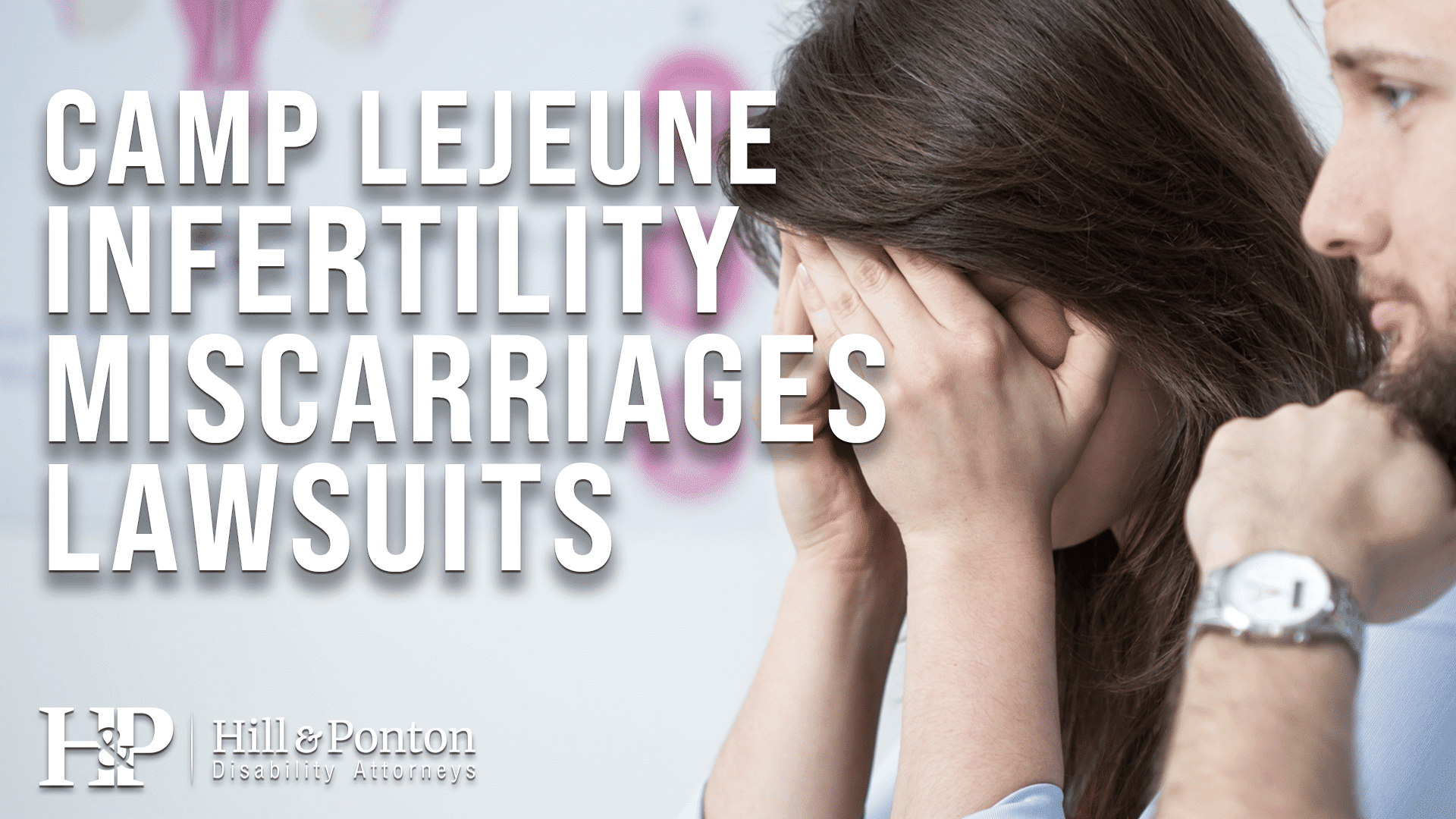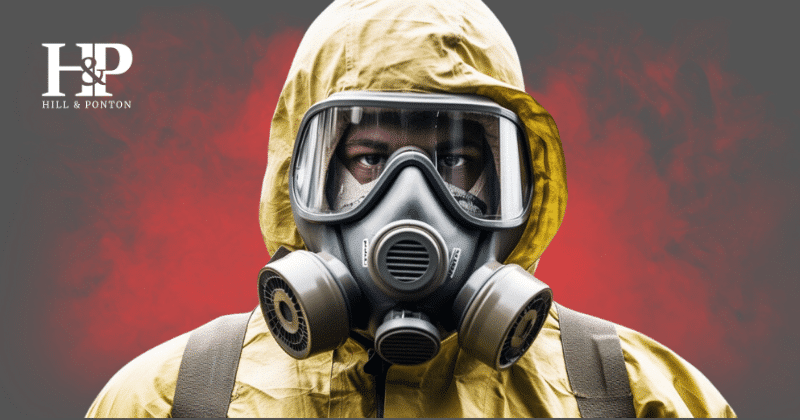For over three decades, from 1953 to 1987, a concealed danger prevailed at the U.S. Marine Corps Base Camp Lejeune in Jacksonville, North Carolina.
Both military personnel and their families were unwittingly exposed to harmful drinking water, a crisis that has led to persistent health repercussions even today.
Among the various health challenges emerging from this exposure, miscarriages and female infertility have become particularly distressing outcomes.
Miscarriages and Female Infertility at Camp Lejeune
The narrative of Camp Lejeune transcends its primary military agenda to encapsulate potential health risks stemming from polluted drinking water.
Research has shown that women residing at Camp Lejeune during this period faced higher risks of miscarriages and complications related to female infertility, linking these adversities directly to the toxic water exposure.
The VA has underscored that those who were at Camp Lejeune or MCAS New River between August 1953 and December 1987 could have been subjected to the detrimental effects of the polluted water.
Once again, two primary on-base water wells were identified by the CDC as the potential sources of this contamination.
These wells contained an alarming combination of chemicals, such as:
- Trichloroethylene (TCE)
- Perchloroethylene (PCE)
- Trans-1
- Dichloroethylene (DCE)
- Benzene
- Vinyl chloride
Additional compounds further revealed the contamination’s profound scope.
By 1985, the seriousness of the contamination had reached public consciousness, leading to the decommissioning of these wells.
The contamination’s primary cause was attributed to a nearby dry cleaner, located just outside the base.
Due to negligent disposal procedures, toxic substances leaked into the water supply, thereby exposing countless individuals to these toxins.
About Miscarriages and Female Infertility
Miscarriages refer to the spontaneous loss of a fetus before the 20th week of pregnancy, while female infertility relates to the inability to conceive despite having regular unprotected intercourse.
Both conditions can be influenced by various factors, including hormonal imbalances, structural anomalies, genetic factors, and environmental toxins.
Exposure to certain chemicals, particularly those present in the Camp Lejeune water, can disrupt hormonal balance and adversely affect the reproductive system, thereby increasing the risk of both miscarriages and infertility.
Recognizing the Indicators of Miscarriages and Signs of Infertility
Early awareness and timely intervention can play a decisive role in managing and mitigating the effects of these conditions.
For miscarriages:
- Spotting or bleeding
- Cramps or pain in the lower abdomen
- Fluid or tissue discharge from the vagina
- Absence of fetal movements or heartbeat
For female infertility:
- Irregular menstrual cycles
- Absence of menstruation
- Severe and painful periods
- Symptoms associated with hormonal fluctuations, such as skin changes or reduced sex drive
- Pain during intercourse
It’s imperative for women, especially those who resided at Camp Lejeune during the contamination period, to be vigilant about these signs.
Immediate medical consultation can provide a clearer understanding of potential risks and required interventions.
Evidence Linking Toxic Camp Lejeune Water to Infertility and Miscarriage
According to the CDC’s toxin facts pages, the chemicals found at unsafe levels at Camp Lejeune can cause health problems.
Here’s a closer look at the three main toxins.
- TCE was used as an anesthetic. Then scientists discovered a relatively small exposure could impact reproductive hormone levels. It also causes heart, liver, and immune system damage. These can result in female infertility, miscarriages, congenital disabilities, and cancer.
- PCE damages the kidneys and liver, making it harder for your body to eliminate it and other toxins. It also impacts the mind, memory, emotions, and mood. A few studies have also linked it to congenital disabilities.
- Vinyl Chloride impacts the immune system, nervous system, and liver. Long-term exposure can reduce male fertility. And it may contribute to developmental delays in children. Developmental delays in the womb often cause miscarriages.
Animal Testing Links TCE to Infertility
More than one study has examined the link between TCE and animal infertility.
- TCE can cause male infertility in mice.
- TCE reduces the “fertizability” of eggs in female rats.
- TCE in mice impacts the ability to conceive. It also led to fewer baby mice per litter and a reduced number of female pups born compared to the control.
But animals aren’t people. So we need proof that these toxins have similar effects on humans. We need to show that one thing (the toxin) causes something else (miscarriages and infertility).
According to the CDC, sufficient evidence for cause and effect is found in one of two ways.
- Controlled human studies show sufficient evidence OR
- Human studies show some evidence, AND animal studies show sufficient evidence AND strong evidence regarding how the chemical can harm humans.
In this case, the second is true. In other words, animal studies alone are not enough medical evidence. People and rodents are different. But when combined with other evidence, it makes the case that toxic water lawsuits are built on.
Camp Lejeune Health Data Confirms Higher Rates of Infertility and Miscarriage
There are known health effects of these toxins. But researchers have also performed studies specifically on the people at Lejeune. They’ve found a strong link between this exposure and health problems.
The Agency for Toxic Substances and Disease Registry (ATSDR) works with the CDC. They found the following in a significant Lejeune Health study published in 2017.
In comparison to similar people without this toxic exposure, those on the base at this time have significantly higher rates of:
- Infertility
- Miscarriages
- Children with congenital disabilities
Am I eligible for VA disability compensation?
You may be eligible for disability compensation payments on a presumptive basis if you meet all of these requirements.
These requirements apply to Veterans, Reservists, and National Guard members.
Both of these descriptions must be true:
- You served at Camp Lejeune or MCAS New River, North Carolina, for at least 30 days total between August 1, 1953, and December 31, 1987, and
- You didn’t receive a dishonorable discharge when you separated from the military
And you must have a diagnosis of 1 or more of these presumptive conditions:
- Adult leukemia
- Aplastic anemia and other myelodysplastic syndromes
- Bladder cancer
- Kidney cancer
- Liver cancer
- Multiple myeloma
- Non-Hodgkin’s lymphoma
- Parkinson’s disease
Evidence shows a link between these conditions and exposure to chemicals found in the drinking water at Camp Lejeune and MCAS New River during this time.
If you resided at Camp Lejeune or MCAS New River, North Carolina, you also may be able to participate in the class-action lawsuit under the Camp Lejeune Justice Act of 2022.
Can I also get health care benefits?
Yes. If you meet the service requirements for Camp Lejeune, you may be eligible to enroll in VA health care.
If you have any of the 15 covered health conditions listed here, you won’t have to pay a copay for care for that condition.
Here are the 15 covered conditions related to Camp Lejeune:
- Bladder cancer
- Breast cancer
- Esophageal cancer
- Female infertility
- Hepatic steatosis
- Kidney cancer
- Leukemia
- Lung cancer
- Miscarriage
- Multiple myeloma
- Myelodysplastic syndromes
- Neurobehavioral effects
- Non-Hodgkin’s lymphoma
- Renal toxicity
- Scleroderma
Note: If you also get VA health care for other conditions that aren’t on this list, you may need to pay a copay for that care.
How Hill & Ponton is Committed to Supporting Affected Veterans
The tragic legacy of Camp Lejeune’s water contamination continues to impact countless lives.
However, with the right legal support, affected individuals can seek and secure the benefits they rightly deserve.
At Hill & Ponton, our primary mission is to advocate for veterans’ rights.
We specialize in VA disability benefits, striving tirelessly to navigate the intricate legal processes on behalf of those who served.
If you or a loved one have been affected by the Camp Lejeune water contamination, our team is here to guide you every step of the way.
Reach Out Today: You’ve served our country; now let us serve you.
Call Hill & Ponton at 1-888-477-2363 for professional assistance.
If you’ve been denied VA benefits and need help filing a claim, we’re here to support you.
Don’t delay—contact us and secure the compensation you deserve.
Click the button below to begin your free case evaluation.





